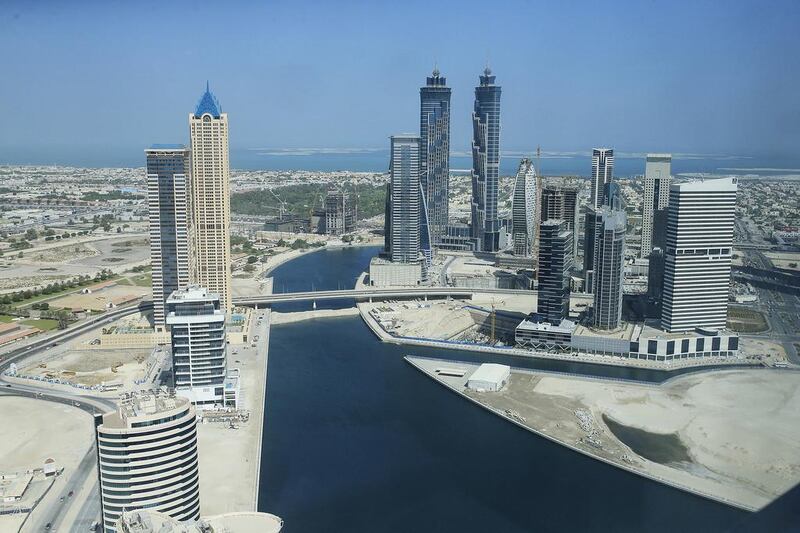Dubai’s biggest landlord has a message for the city’s developers: get ready to rethink your budgets and building plans repeatedly this year or be engulfed by a topsy-turvy market.
Companies need to be “more agile to sustain their businesses and survive the tough period ahead,” said Hesham Al Qassim, chief executive of the state’s Wasl Asset Management and vice chairman of Dubai’s largest lender, Emirates NBD. “Those who are mindful of the reality around them will manage, but those who stretch themselves with billions worth of projects won’t.”
Dubai’s property market was buffeted last year by falling oil prices, rising political tension in the region and slowing economic growth from China to Brazil, all trends that are set to continue in 2016. Real estate developers, whose projects can take two to four years to build, may see their markets change several times over that period.
Residential property prices in Dubai dropped around 15 per cent last year and rents softened as demand from European and Russian buyers waned, Phidar Advisory said last week.
The dollar-pegged dirham made properties more expensive at a time the decline in the oil price put pressure on government spending. “I’d be very cautious, whether running an asset management company or a development company,” Mr Al Qassim said. “I have to be very dynamic in terms of my budget planning. When there is a slowdown, I have to go through my budget and try to adjust it according to the market.”
Wasl, which collects rent from around 35,000 households and holds offices, hotels and golf courses across Dubai, is developing thousands of middle-income homes, a market that’s experiencing a severe shortage. Mr Al Qassim said he reviews the company’s plans often, shelving some and delaying or altering others to better respond to fast-changing demand and market sentiment.
We look “to develop what the company can afford to do in the worst-case scenario,” he said.
He says greater interest-rate stability shows that the UAE market is adjusting to lower oil prices. However, bankruptcies at some companies in the country could set off a chain reaction that hurts many others, he said.
Emirates NBD, Dubai’s largest bank, expects earnings to be flat in 2016 and the bank will freeze hiring to reduce staff through attrition rather than job cuts, Mr Al Qassim said. Growth will probably return in mid-2017 as a decline in values spurs new demand and momentum builds ahead of Dubai hosting of the World Expo 2020.
business@thenational.ae
Follow The National's Business section on Twitter






